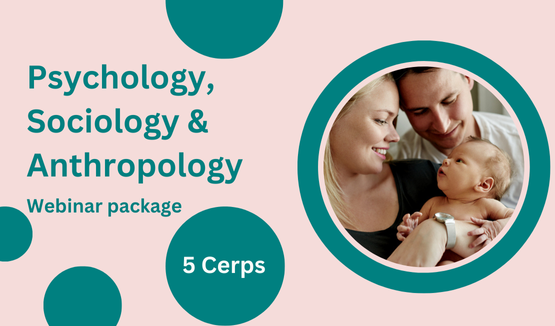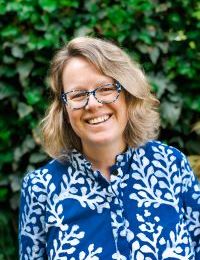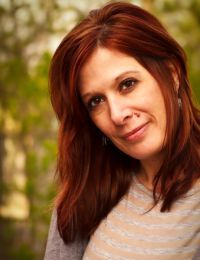
Breastfeeding is on the rise in the 21st century. However, even with all of the evidence-based research and verification from health care professionals, there are still some strong barriers to breastfeeding. Research and case studies have associated how child sexual abuse, intimate partner violence and birth trauma suffered by the mother and the baby can interfere with breastfeeding initiation and duration. By dissecting some of the research and case studies, this presentation identifies how trauma, either endured by mother, baby, or both, can lead to failure to initiate breastfeeding, latch issues, milk supply problems, painful feeds and early cessation of breastfeeding. Both psychological and physiological damage can occur during this delicate post-partum period. This presentation will help the provider to detect the sometimes subtle signs of trauma. By using the research and case studies, providers will learn how to best support women who are struggling with the backlash of trauma and abuse. Once trauma has been identified, taking care to problem solve is crucial for initiating and sustaining breastfeeding under difficult circumstances.
IBLCE Content Outline:
1 L Cerp (I, V, VI, VII)
In this presentation, Professor Chamberlain will:
IBLCE Content Outline:
0.75 L Cerp (V, VII)
Inevitably much of the work of breastfeeding support focuses on establishing a feeding relationship, but we shouldn’t underestimate the challenges that weaning can bring, especially for an older child who has a strong emotional connection to breastfeeding. This presentation describes how we can support parents in making decisions about how to end a breastfeeding relationship and how to go about it in a way that feels authentic and emotionally supportive for all parties. When our society simultaneously devalues natural term breastfeeding and perceives child-led weaning as an ideal, parents can be left feeling isolated. What role can breastfeeding supporters have?
IBLCE Content Outline:
1 L Cerp (I, V, VII)
With over 2000 feeds in the first year of life, it's easy to see how difficulties with feeding could impact the parental-infant relationship. During this talk we will explore some of the common challenges the dyad may experience, and how feeding impacts mental health - and vice versa.
IBLCE Content Outline:
1 L Cerp (I, IV, V, VII)
Parents commonly experience difficulties adjusting to life as a new parent, especially when it comes to sleep. But what if you had two, or more same-aged sleepless littles? Supporting families with multiple children brings a unique set of challenges that many parents (and professionals!) struggle to comprehend. This presentation will review some of the biological, psychological, and social differences to consider when assessing a family’s sleep situation. How does the early development of multiples differ from singletons? What are some of the psychological blocks, logistical challenges and societal pressures that parents of multiples face? And what impact does this have on sleep? This session will explore some of the common day-to-day challenges faced by families with multiples, and will review a variety of holistic strategies that you can use to gently support families to get more sleep without sleep training.
IBLCE Content Outline:
1.25 L Cerp (I, V, VII)

Emma Pickett
First qualifying as a breastfeeding counsellor with the UK’s Association of Breastfeeding Mothers in 2007, and previously their chair for 9 years, Emma qualified as an IBCLC in 2011 and has written 4 books (You’ve Got It In You: A Positive Guide to Breastfeeding, The Breast Book, Supporting Breastfeeding Past the First Six Months and Beyond, and Supporting the Transition From Breastfeeding). She volunteers as part of the training team for the UK National Breastfeeding Helpline and at groups in her local area in North London. Her private practice focuses on supporting breastfeeding families at all stages. Her podcast, “Makes Milk with Emma Pickett” has a regular focus on weaning alongside all aspects of the breastfeeding experience.

Catherine Chamberlain
Professor Catherine Chamberlain is an Australian NHMRC Career Development Fellow and Professor of Indigenous Health at the Centre for Heath Equity, The University of Melbourne. She has worked in maternal health in remote, rural and urban settings over 25 years as a midwife and public health researcher. A descendant of the Trawlwoolway people (Tasmania), her current research project aims to co-design perinatal awareness, recognition, assessment and support strategies for Aboriginal and Torres Strait Islander parents experiencing complex childhood trauma.

Maisie Ruttan
Maisie Ruttan is a family sleep specialist and parenting coach. She runs an international practice offering individualised support to families and is the founder of Hello Bedtime, an online sleep program for children. She specialises in working with bigger kids (2+), families with multiples, and children with neurodevelopmental disabilities, using a heart-centred and holistic, parenting to sleep framework. She has a B.A. in psychology and spent many years working as a psychiatric nurse before turning to private practice. She is multi-certified as a holistic sleep coach, infant sleep educator, and peaceful parenting educator, with additional training in cognitive behavioural therapy, and developmental theory. She lives on Vancouver Island, in Canada with her husband and twin boys.

Sophie Mace
Dr Sophie Mace is a GP/LC who specialises in caring for pepi and their whanau throughout pregnancy and the early years of life. Alongside her medical qualifications, she is an IBCLC and is NDC accredited through the Possum’s Clinic (Aus) and has comprehensive training in maternal and infant mental health. She also has a special interest in neurodevelopmental conditions, especially ADHD in both children and their parents.

Dianne Cassidy
Dianne is an IBCLC, podcaster, author, lactation education manager and has been working with families since 2008. She has worked with thousands of families in all areas of their breast/chest feeding journey. Dianne teaches using her real-life experiences and case studies, which sets her apart in the lactation field providing a personalized and realistic experience for her audiences. Dianne’s evolution began as a clinical, patient-centred lactation consultant to a public speaker and educator, where she really shines. Her energy is contagious, and is felt by families, lactation consultants and birth workers alike.